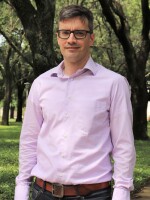The Florida Wildlife Corridor stretches from the Everglades to North Florida and to the Panhandle. It includes animals like the Florida black bear, the Key deer, Florida manatee, Loggerhead sea turtle and more, along with many threatened plant species.
The corridor also allows animals freedom to roam between areas of protected conservation land.
It’s also important for fishing, ranching, recreational activities - and the state’s drinking water. Ten million acres of the corridor are protected conservation land, but that leaves 8 million acres, including farmland, vulnerable to development. And that’s the focus of a documentary series called "Protect Our Paradise" which is streaming on the Discover Florida Channel this fall.
On this episode, we discuss the threats facing Florida’s wild lands and wildlife, what it costs to preserve conservation land, and who’s going to pay for it. And whether it’s even possible to save the 8 million unprotected acres in the wildlife corridor.
Joining the conversation are Traci Deen, CEO of Conservation Florida, Chad Crawford, host of the Protect Our Paradise documentary series and state Rep. Keith Truenow, a Republican from Lake County who was one of the authors of the bill that led to the creation of the Florida Wildlife Corridor Act in 2021.

Crawford is the host of "How to Do Florida," a TV show about getting into the outdoors that ran for 13 seasons.
"When I started 'How to Do Florida,' it was about introducing people to the Florida that I love, I felt like if I could get them to fall in love with Florida, like I do, I think they would be less apathetic about the environmental impacts that are affecting it," says Crawford.
"Protect Our Paradise" has a more urgent message, he says.
"I felt like it kind of had gotten to the point where I needed to really speak more honestly and openly to my audience about some of the issues that I've seen happen over the course of my career, 15 years of really traveling all over Florida, seeing Florida, probably like very few have seen."
Deen says she's optimistic about the future of the wildlife corridor, despite losing wild places to growth.
"Yes, our state is growing every single day and rapidly. So a lot of that acreage is very vulnerable," says Deen.
"You know, we will protect a few more million acres. Will we catch all 8 million? No. That's not the goal. The goal is to protect a functional statewide corridor from Pensacola to the Florida Keys. And that opportunity can 100% become a reality."
Truenow says agriculture is an important factor in conserving land as well as protecting wildlife.
"Sustaining working ranches and farms is a huge opportunity, that if we don't do something about it with things that we're doing, we're going to lose those things," he says.
Truenow defends the state's spending on land acquisition, which some environmental advocates say has been inadequate.
"We had some really trying years, through the Great Recession and getting to where we're at today, but in the amount of funding that we're willing to put forward today is making up for a lot of those times," he says.
You can listen to the full conversation by clicking on the “Listen” button above. Or you can listen on the WUSF app under “Programs & Podcasts.





